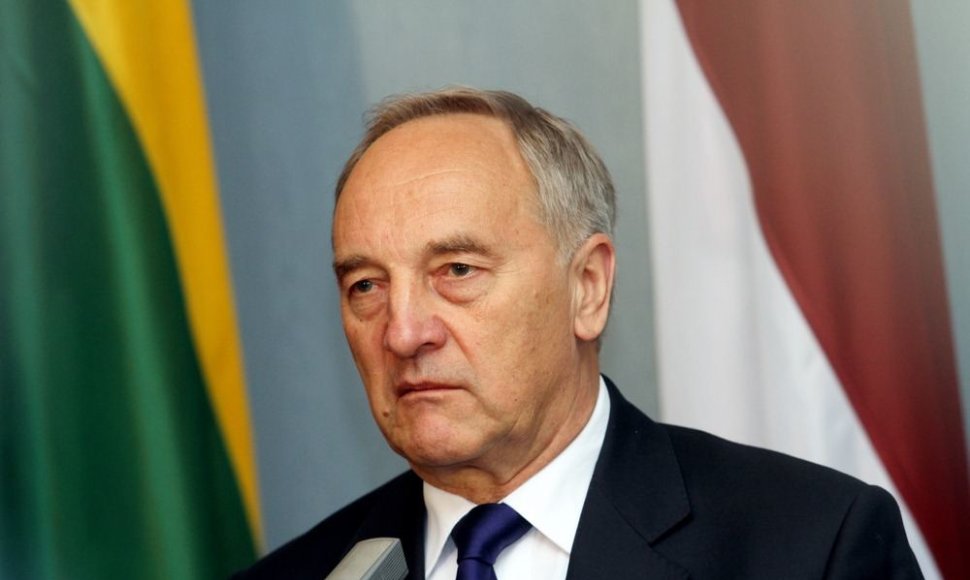"This issue is still open in Latvia but it has not been actively escalated lately. We have much more important issues at the moment we need to solve as soon as possible. What concerns the compensation of occupation damage, I see more of political rhetoric and discussions than real actions. Equally important is the restitution of prewar property of some ethnic minorities," the Latvian president said in an interview to the Lithuanian daily Lietuvos Žinios commenting on his country's position on the compensation of occupation damage.
Asked to evaluate Latvia's current relations with Russia, he said they were gaining importance.
"Russia is gaining more and more importance as a trade partner, and its investments in Latvia are also growing. In terms of business relations and mutual relations between people, continuous cooperation is taking place. It's hard to describe mutual relations on the political level. Nevertheless, taking into account our growing cooperation in other areas, we can say that they are gaining importance," Berzins said.
The Soviet Union occupied Lithuania in 1940 by sending over 150,000 Red Army troops into the country. In 1941-1944, Lithuania was under the Nazi Germany rule, followed by the second Soviet occupation that lasted until 1990. Some 444,000 Lithuanian residents repatriated or fled Lithuania in the 1940-1952 period, 275,000 were taken to labor camps or deported. About 25,000 people were killed in fighting, in addition to more than 20,000 participants and supporters of resistance efforts.
The Soviet damage compensation issue was raised immediately after Lithuania declared independence in 1990. Lithuanian citizens stated their will in a referendum, where 90 percent of voters demanded that Russia should not only withdraw Soviet troops from Lithuania's territory but also reimburse the damage caused by and related to the Soviet occupation.
Latvia and Estonia were occupied in 1940.
A BNS/RAIT survey has showed recently that 54 percent of Lithuanian people believe the country should demand compensation for Soviet occupation from Russia.
Another 41 percent said no, and 5 percent did not have an opinion.
The survey of 1,012 people, aged 15-74, was carried out by public opinion and market research company RAIT on May 30-June 10.












